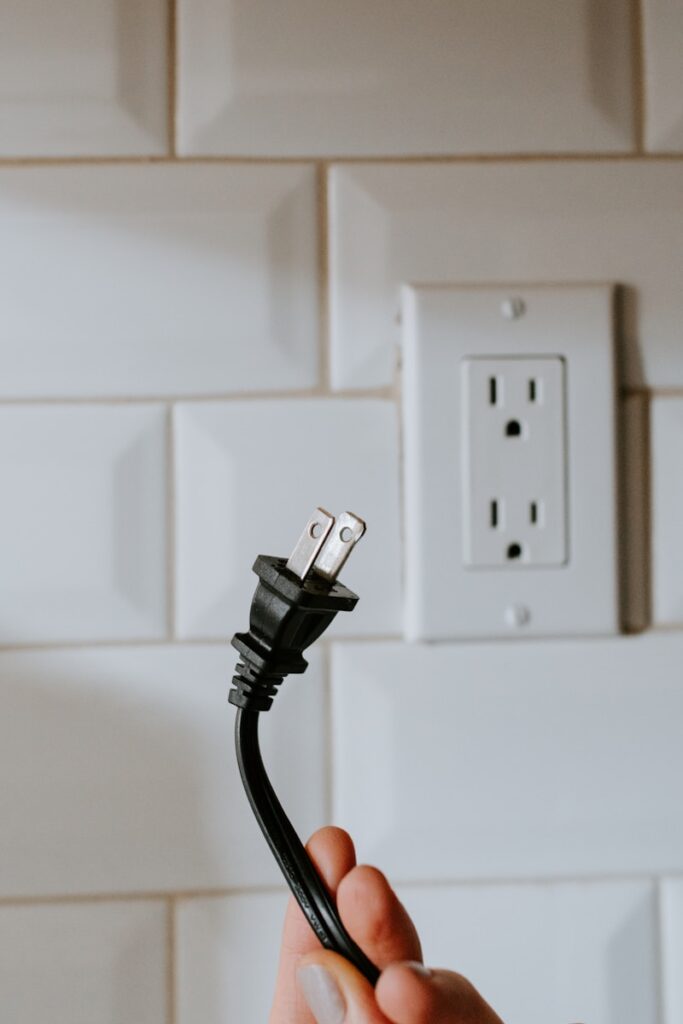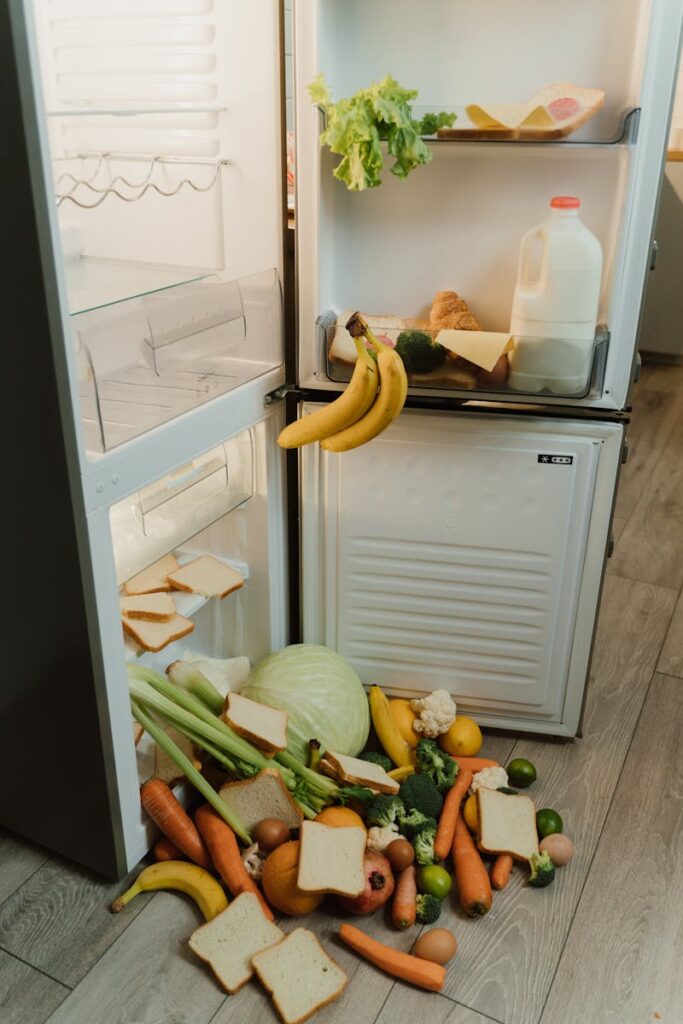
Saving money doesn’t have to mean sacrifice—it can be about smart habits, intentional choices, and even community collaboration. From slashing your electric bill with insulation fixes and smart thermostats to ditching unused subscriptions that drain your wallet, small tweaks add up. Timing big purchases around sales, curbing impulse buys with the 30-day rule, and cutting food waste (which costs the average household thousands annually) are all practical steps. And for those looking to go further, community food co-ops offer a way to save by buying in bulk and sharing resources—proving that stretching your budget can be both creative and collaborative.

1. **Reduce your electric bill**Energy costs are another area where small changes save big. Reducing electric bills is totally possible with simple habits or home fixes. Plugging up insulation leaks prevents heated or cooled air from escaping. This makes your system work less hard for you. Swapping old, hungry appliances for efficient ones helps greatly later.
Smaller daily actions always help out too. Using smart power strips cuts down on vampire energy draw. Electronics plugged in draw power when not used. Switching to a smart thermostat optimizes heating and cooling times. Saving energy becomes automatic this way. Small drops in monthly electricity usage add up to big savings.
Read more about: The AI Jobquake: Navigating Tech Layoffs and Finding Your Place in the Evolving Workplace

2. **Cancel unnecessary subscriptions**Easily sign up for a free trial or monthly service. Then you completely forget about it later. These recurring charges quietly drain your bank account, you see. Take time to carefully review your bank statements lately. Look for recurring expenses you don’t need or use anymore. Like streaming apps, gyms, or other things.
Once identified, be ruthless in canceling everything. Cancel anything not essential or providing value for you. Another tip is being cautious about signing up for free trials with payment info. If you sign up, set a calendar reminder to cancel. Do this before the free period ends quickly. Avoid getting charged automatically. This simple review uncovers hidden costs you can easily eliminate.
Read more about: Smart Financial Moves: 5 Spending Habits Frugal People Skip

3. **Map out major purchases**Thinking about buying something big, like a new car maybe. Don’t just buy it whenever a need arises, always. You can save quite a bit by timing purchases strategically now. Match them with annual sale periods often. Retailers have big sales events during the year. Like Black Friday or holiday sales events they offer.
Knowing when these sales happen helps plan ahead now. Perhaps you snag the item you want at a discount. If you are an Amazon Prime member, watch for sales. Their exclusive events usually happen in July and October. Make sure you get a genuine deal, not a hyped price. Track prices over time for sure. Shopping browser extensions automate this price tracking easily. Help you see history or find coupons online. Tools like Camelizer or Honey help here greatly.
Read more about: Turn Your Closet into Cash: How to Launch a Profitable Online Reselling Side Hustle This Summer

4. **Delay purchases with the 30-day rule**Impulse buying is a budget killer, you know it. You see something you like, and it is in your cart. Before knowing, you have already checked out now. A great way to combat this is the 30-day rule. The idea is simple: when you see an item, wait 30 days. This cooling period gives you plenty of time to really think. Think about whether you truly want or need it only.
Often initial excitement wears off after a few days. You realize you don’t actually need the item later. If shopping online, put the item in your cart first. Then intentionally walk away from your device. Some retailers might send coupons to encourage purchases. That’s an added bonus if you decide you still want it. If 30 days is too long, a 24-hour delay helps. Even a 48-hour wait prevents spontaneous spending easily.
Now let’s look at creative ways to save money next. Especially regarding food costs, which are a major part of the budget. Cutting down wasted food feels like finding free money.

5. **Reducing Food Waste**Did you know the average household throws away a lot of food? About £1,000 worth of food every single year is wasted. That figure is staggeringly high, you think. Waste charity WRAP suggests the average person bins around £250 of food annually. This food could have been eaten perfectly well. Most common culprits are fresh produce items typically. Data shows top wasted items like potatoes, bread, and milk. Homemade meals, fizzy drinks, and fruit juice also appear. Pork, ham, bacon, poultry, fresh carrots, and processed potatoes are on the list too. There is a massive chance to save money by being mindful about food.
Eliminating food waste entirely probably occurs unrealistically. A little waste is bound to happen eventually. But the current scale is unsustainable and hits our wallets hard. What can we do to reduce food and money wasted? Getting organized feels like a huge first step, you know. Planning meals for the next few days helps a lot. You know the exact ingredients you will need. Avoid buying items just in case they expire soon. Smaller, more frequent shops also help with perishable items.
When shopping in person, always check use-by dates. Especially on things like meat or dairy products. If you know when you use an item, pick one with a good date. Reduces the chance of it going to waste later. Also, don’t be too picky about how food looks, you see. We sometimes turn our noses up at bruised apples and wonky carrots. These items are often perfectly fine for eating. Many stores sell ugly or wonky fruit at a discount. A great way to save money and reduce waste from the start.
Your freezer is your friend in fighting food waste effectively. Not just for frozen chicken dippers, is it? Freezing leftovers is a great way to avoid binning food. Gives you easy meals later during the week period. You also freeze things like bread and some dairy. Extend their life this way for sure. Another simple tip is measuring your portions now. Knowing how much pasta or rice is needed helps. Cook just that amount, minimizing leftovers easily. Might take a little trial and error to figure out. Mastering portion sizes is a great money-saver overall.
Finally, consider having a regular use-up day each week. This idea is promoted by retailers based on food waste research. Concept: simple. Once a week, make a meal using leftovers. Whatever ingredients are left needing to be used up are utilized. Might get interesting combinations like curry with spaghetti, yes. But much better than letting that food spoil for nothing. It is a flexible way to get creative and ensure. Getting the most value out of every grocery shop now.

6. **Innovative Community Solutions: Food Co-ops**Saving money can also be a community effort together. Imagine saving up to 40% even more. On your weekly food shopping needs now. Sounds amazing, you think it does. That is the potential with community food co-ops sometimes. Organizations like Cooperation Town, which started in 2019, help people. Communities buy food wholesale together. Acquire surplus groceries from businesses too quickly. Instead of charity, focus on solidarity and collective action instead.
How this works is usually neighbors are in a food co-op now. They chip in a small amount weekly, perhaps three to six pounds. This collective pot allows groups to buy in bulk. From wholesalers, they purchase goods. Benefiting from economies of scale not available for individuals. They often receive donations of surplus food from charities. Adding even more value for members always. One example showed a five-pound contribution easily getting forty pounds of food. That is incredible savings happening there, you see.
Setting up a food co-op involves finding like-minded neighbors who want help. Cooperation Town suggests starting small, maybe fifteen to twenty households. Keeps things manageable easily. The core principle they emphasize is getting out and talking. Knocking on doors and chatting with immediate neighbors is key. Helps gauge interest and build the group size. You will need space to hold meetings sometimes. Could be home, village hall, or even an online meeting.
At the founding meeting, everyone discusses goals and questions. Dividing jobs equally among members feels important. No one person gets overburdened by work. The spreadsheet helps everyone list foods they buy often. Find common items for bulk orders together now. Buying staples like rice pasta in bulk does not always offer huge savings. Not compared to supermarket own brands anyway. Real value comes from buying large seasonal produce boxes. From wholesale grocers, much lower prices are available there.
Decision-making in co-ops often uses the consent method, you see. Discussions continue until everyone is happy and no objections exist. Might take a little longer sometimes, yes. Ensures everyone always feels heard. You will need to decide how to handle weekly payments too. Cash or app is a choice you make. Find convenient collection spots for bulk orders easily. Ideally, public space is accessible throughout the day for members. Cooperation Town offers tons of resources online quickly. Guides on setting up meeting agendas list templates provided. Even example letters to local businesses about surplus food are there. While challenges exist, like getting people used to cooperating, it works. Rather than being insular, together is better. The potential for savings and building community connections makes it an exciting option. Especially with ongoing cost-of-living pressures nowadays.
So there you have it from fine-tuning Bill’s habits now. Tackling food waste also means joining forces with neighbors. Many creative, practical ways to stretch your money farther are available. Not about deprivation at all, you see. About making smart choices being organized often. And sometimes working together builds a resilient financial life. Every little bit adds up consistently, you know. Making your savings goals feel that much closer for you.
Related posts:
How to Save Money: 28 Ways
Can food co-ops really cut grocery bills by 40%? I set one up with neighbours to find out
3 budget-friendly recipes to save money with one smart shopping list



